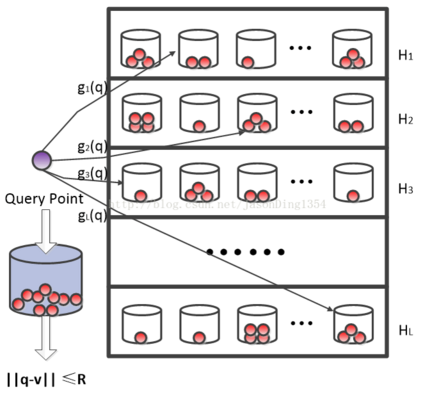Assume that Alice can do only classical probabilistic polynomial-time computing while Bob can do quantum polynomial-time computing. Alice and Bob communicate over only classical channels, and finally Bob gets a state $|x_0\rangle+|x_1\rangle$ with some bit strings $x_0$ and $x_1$. Is it possible that Alice can know $\{x_0,x_1\}$ but Bob cannot? Such a task, called {\it remote state preparations}, is indeed possible under some complexity assumptions, and is bases of many quantum cryptographic primitives such as proofs of quantumness, (classical-client) blind quantum computing, (classical) verifications of quantum computing, and quantum money. A typical technique to realize remote state preparations is to use 2-to-1 trapdoor collision resistant hash functions: Alice sends a 2-to-1 trapdoor collision resistant hash function $f$ to Bob, and Bob evaluates it on superposition and measures the image. Bob's post-measurement state is $|x_0\rangle+|x_1\rangle$, where $f(x_0)=f(x_1)=y$. With the trapdoor, Alice can learn $\{x_0,x_1\}$, but due to the collision resistance, Bob cannot. This Alice's advantage can be leveraged to realize the quantum cryptographic primitives listed above. It seems that the collision resistance is essential here. In this paper, surprisingly, we show that the collision resistance is not necessary for a restricted case: we show that (non-verifiable) remote state preparations of $|x_0\rangle+|x_1\rangle$ secure against {\it classical} probabilistic polynomial-time Bob can be constructed from classically-secure (full-domain) trapdoor permutations. Trapdoor permutations are not likely to imply the collision resistance, because black-box reductions from collision-resistant hash functions to trapdoor permutations are known to be impossible. As an application of our result, we construct proofs of quantumness from classically-secure (full-domain) trapdoor permutations.
翻译:假设爱丽丝只能做典型的概率性多面性阵列阻力计算, 而鲍勃可以做量子多面性阵列时间计算。 爱丽丝和鲍勃只能通过古典频道进行交流, 最后鲍勃可以得到一个州 $x_ 0\rangle}x_ 1\rangle$, 一些点字符串 $x_ 0美元和 $x_ 1美元。 爱丽丝有可能知道$xx_ 1 的陷阱碰撞, 但鲍勃不能知道吗? 这样的任务, 叫做 White 远程状态准备 }, 在一些复杂假设下, 确实可以做到 。 并且是许多量式阵式阵列的原始数据基础, 比如量度证明, (经典客户) 量性阵列的量计算, (经典) 量子计算, (经典) 量子阵列的量计算功能是 $0_ xx 美元, 开始一个2 - 1x的陷阱碰撞功能功能: 向鲍勃发出2 - 1 游戏的碰撞功能, 向Bob 。 在超级状态上评估它, 和测量。 。


